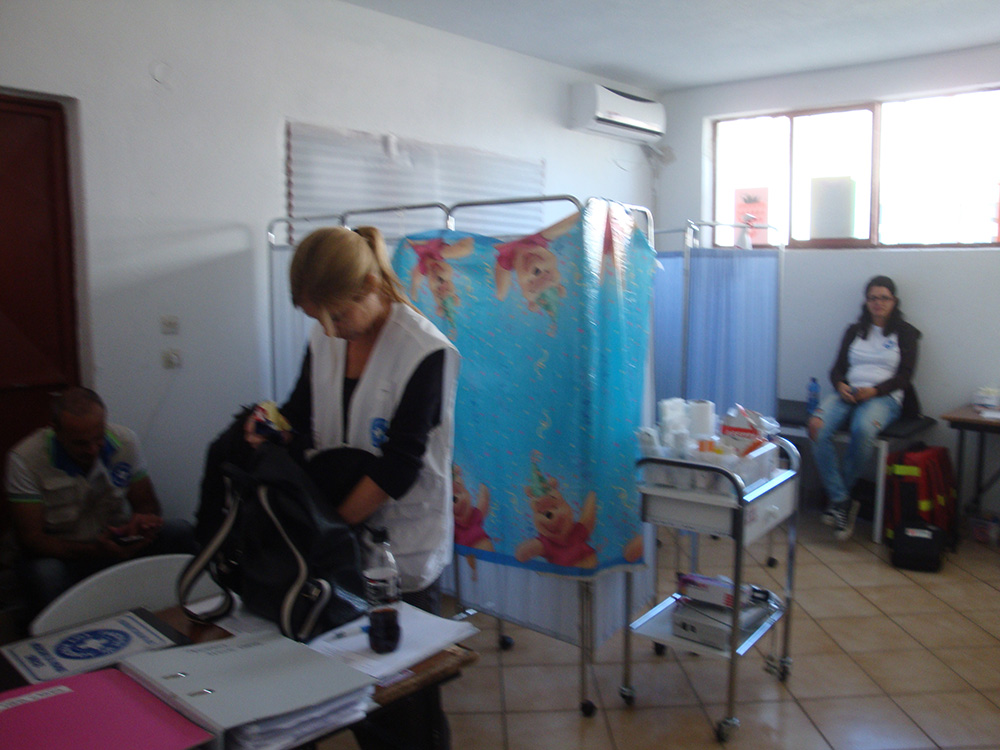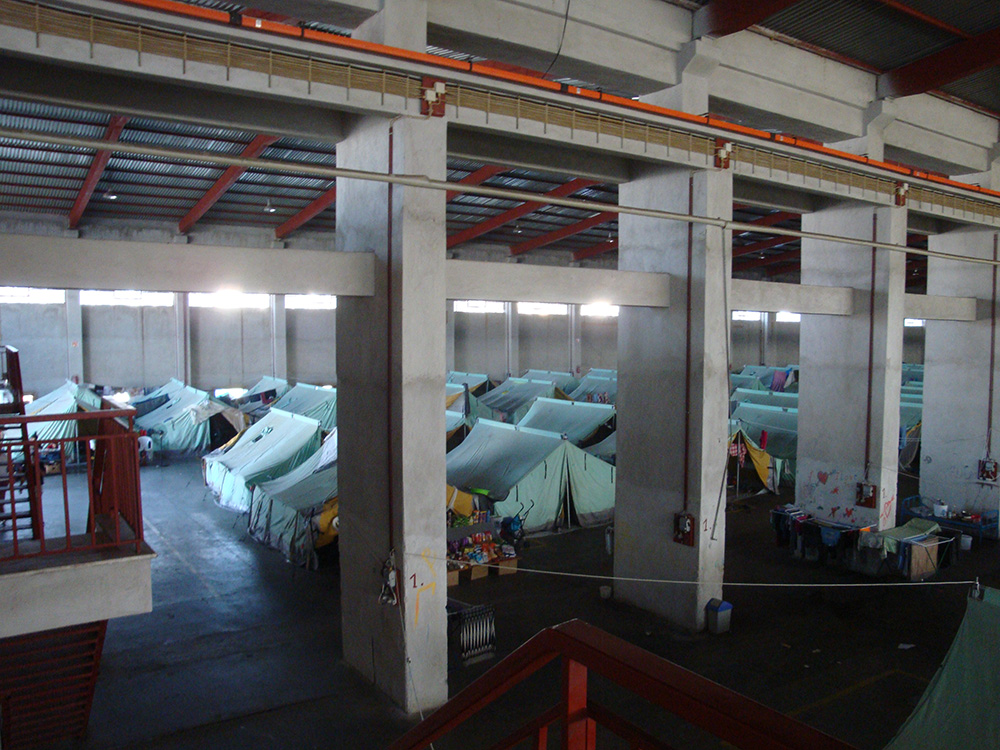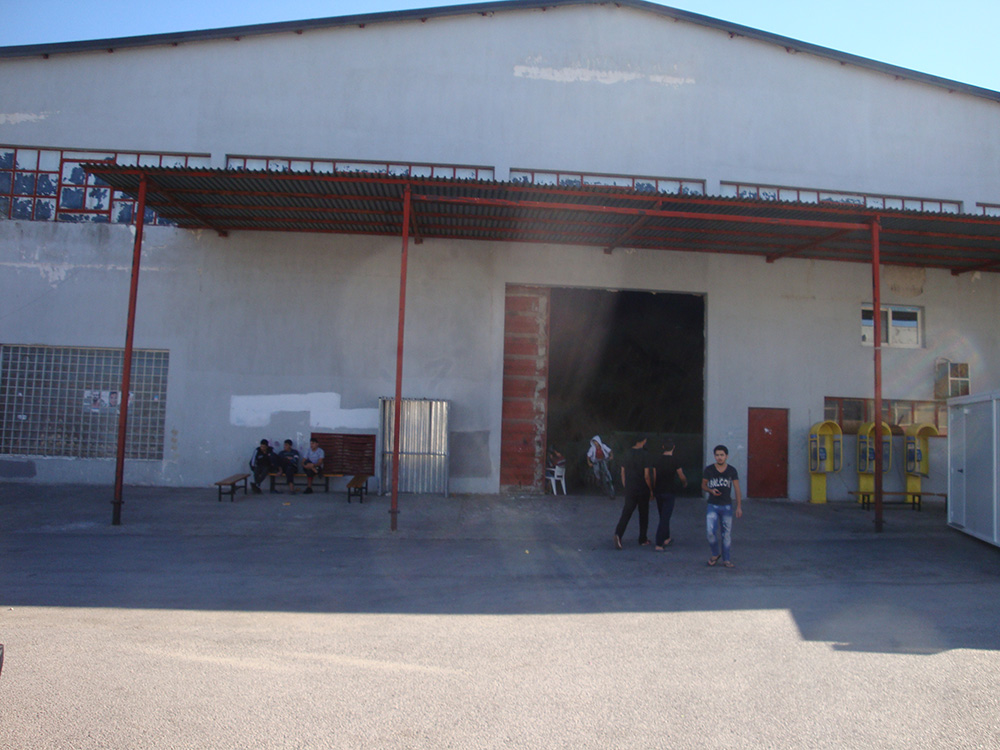The weather has suddenly cooled and when we arrived for work in Oreokastro camp yesterday, the former car factory seemed oddly quiet; the refugees had decided to stay snuggled up against the cold and so - unusually - no patients were waiting to be seen when we unlocked the clinic at 9am. Soon enough though, people started to arrive and as I treated various inflamed wounds and infected mosquito bites, I wondered what the refugees’ washing facilities were like.
I didn’t need to wonder long. Later in the afternoon, there was another lull and translator Sarah kindly agreed to show me around. Sarah’s work often means meeting refugees in their tents and she is clearly well-known and well-liked.

We walked around the side of the huge semi-derelict factory building, where even more tents are pitched, and on to a line of portaloos for the men and another line for women. Then we stepped inside the wash houses - also segregated. In the women’s part, they washed clothes and pots in big oblong ceramic sinks while others showered in individual cubicles. There is no hot water and I could see how challenging it is for the refugees to keep clean and prevent skin infections especially as most of the refugees are townies – not villagers who are used to rural challenges, but people accustomed to electricity, running hot and cold water, TVs and all the things we at home take for granted, and which they too once took for granted.
Leaving the wash-block we encountered a middle-aged women dressed in black with her head covered in Muslim style. She was pushing a child’s buggie containing a five-gallon container of water. Sarah explained this was dirty water that she was wheeling outside to throw away.
She was from Aleppo (northern Syria). Her husband and son died there when her house was bombed and reduced to rubble. I wished her luck in finding somewhere to live. She responded, ‘Everything is finished for me now.’ Then dispassionately, ‘God is great.’
Three lads in their twenties walked by. They are often in the clinic. One carried a huge steaming pot of food and he shouted an invitation to eat with them. Sarah demurred; there was an exchange, then she said we must take a mouthful from them. A little group of children playing with two healthy-looking dogs attracted our attention and when they saw our interest, beckoned us into an abandoned part of the factory building where a litter of two-week-old puppies slept. There was a pigeon roost too and I smiled recognising the ability of children to find interest and wring joy out of any situation.
The lads were impatient with us and came back to make sure we would join them in their tent. We removed our shoes and ducked inside to sit on the ground with them and enjoyed some tastes of freshly made pita-bread and vegetables. A toddler from the next tent browsed on the food too. The others inside the tent were a middle aged couple, the three lads plus a fourth, whom I had seen earlier that day and spectacularly failed to teach back-strengthening exercises. Sarah told me that the couple had one son and had effectively fostered the other three. They were all Palestinians who had fled into Jordan, then Lebanon where they stayed for two years and then had to move on again into Syria. They were settled there for many years but they had been forced to flee again. Yet they still amanged to smile.
The fostered twenty-somethings were probably leading not-altogether-pure lives. I'd treated a fairly fresh knife wound on the shoulder of one of them earlier in the week. But they were likeable and seemed to have a tremendous affection for each other. It was great to see the couple lending stability to the young men’s lives, while the men clearly were helpful to the couple when heavy jobs needed to be done.
I felt a pang of guilt. We made our excuses as we had to return to the clinic and see the next line of patients.

